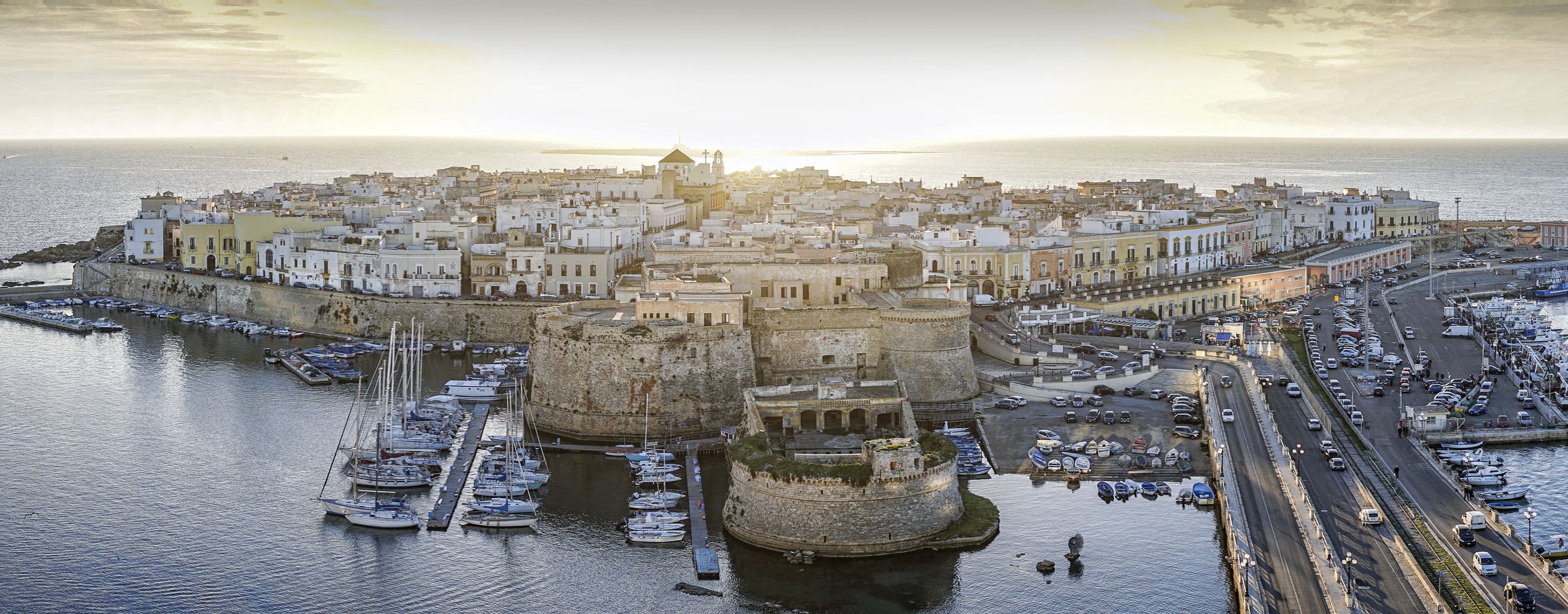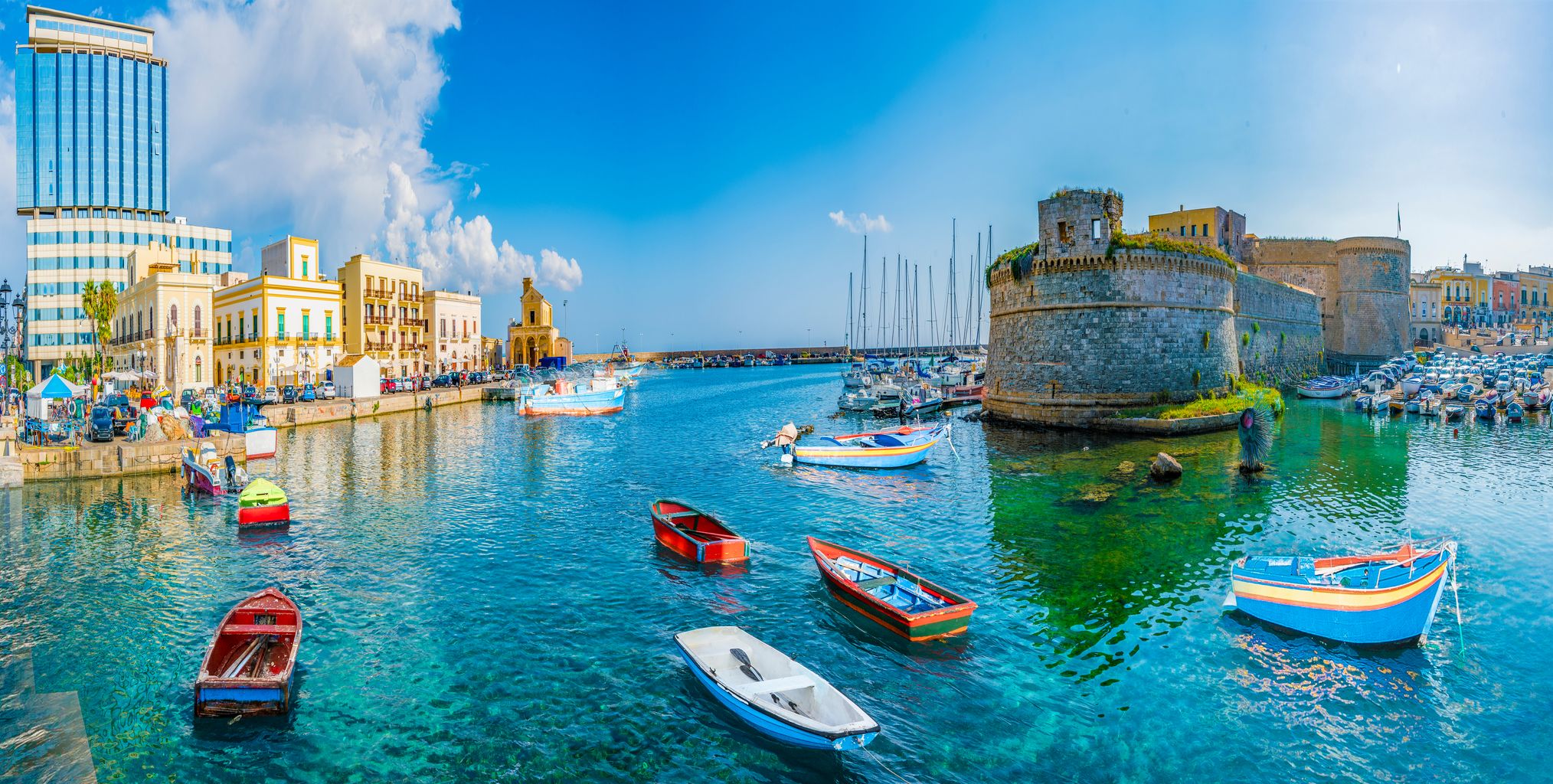This town, indeed, can be the ideal destination both for those looking for a lively vacation rich in nightlife events and for those who love spending long days on the beach or discovering important artistic and historical attractions.

What to see during a vacation in Gallipoli?
Gallipoli has little more than 20,000 inhabitants and, over time, has gained a relevant reputation among the most popular Italian tourist destinations, especially for summer vacations.
This perennial success firstly depends on the landscape and historical beauties it can offer. Gallipoli can be divided into old town and new town. The old town is rich in historic palaces and other places deserving to be visited. It is enough to mention, as an example, the Angevin-Aragon Castle or the many churches which characterize the oldest part of the town.
Among them, we must mention the Cathedral of Sant’Agata: this building is probably the most important witness of the Baroque age in Gallipoli.

The mot beautiful beaches in Gallipoli
Gallipoli is really appreciated also by foreign tourists, who decide to stay here in summertime to enjoy its beautiful beaches.
The beaches and the stunning and unique sea are, indeed, among the strengths of this small town in Salento. Making a list of the most beautiful beaches in Gallipoli is impossible, because we should enlist all of them.
Among the many beaches, those of Baia Verde and Punta della Suina deserve a particular mention. The first one is probably the most famous beach in Gallipoli and very fascinating thanks to its white sand and its almost tropical waters.
The second one, instead, is very particular because it is surrounded by a splendid pine forest which contributes to make this place perfect for those looking for a relax area, far from the noise of the mass tourism.

